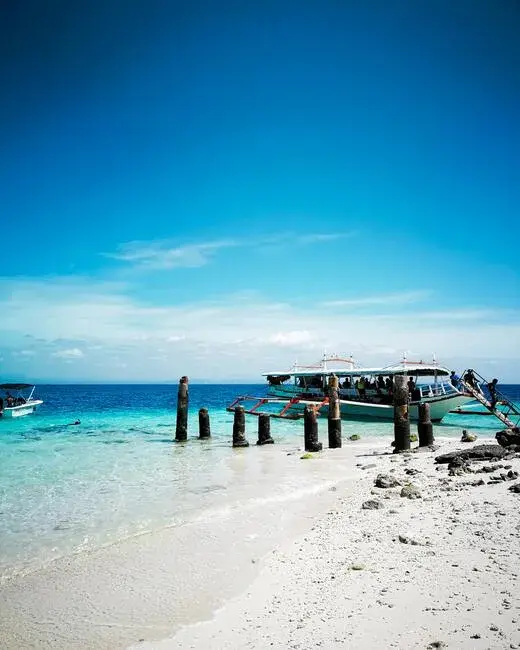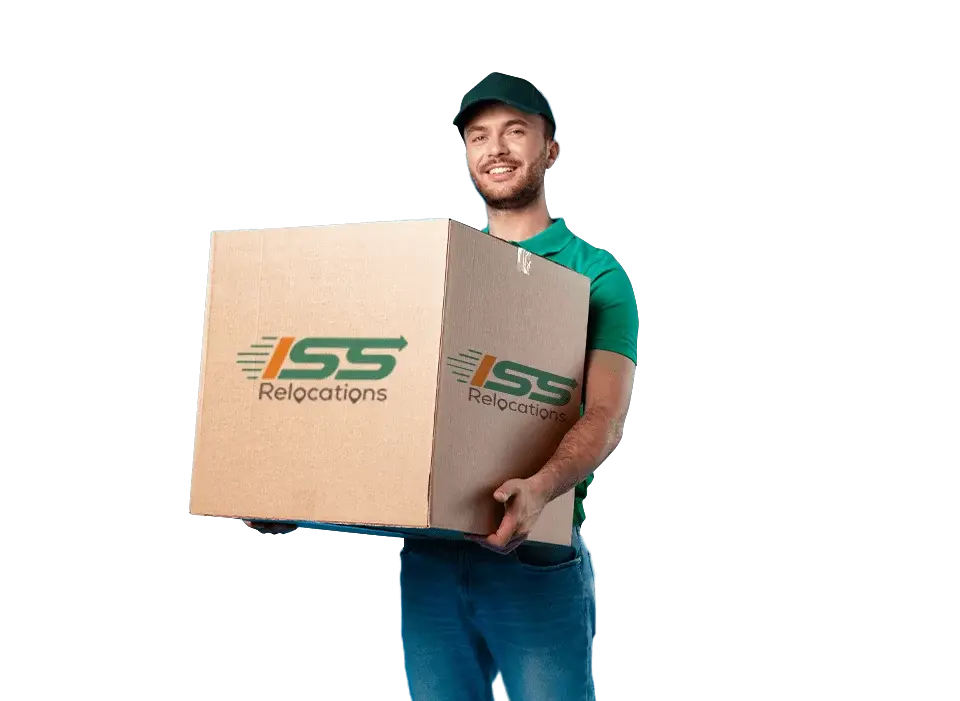"*" indicates required fields
Moving To Philippines
Our reliable International moving makes Relocating to Philippines Easy for You. Start your move to Philippines by getting a free moving quote.
Comprehensive Guide on Relocate to Philippines
Who wouldn’t want to take advantage of a relaxed way of life, a lovely climate, and palm-fringed beaches? You can get all of this and much more in the Philippines. It is made up of more than 7,000 islands and is a universe unto itself, with a rich cultural life and dynamic modern cities.
You should have answers to a few important questions before migrating. Poor planning causes a tonne of stress for you and your family. ISS Relocations is the solution if you’re thinking of moving to Philippines and want to use professional moving services. Our job is to make your move easy and hassle-free as we provide reliable relocation services in Philippines.
Benefits of Relocation to Philippines:
Your life will be greatly improved by relocating to Philippines. You will learn about Filipino culture and all that is associated with it.
- Stunning Scenic nature
- Safe environment
- Multilingual
- Low cost transportation
- Social Security
Because of their long-standing relationships, expats and retirees have long considered moving to Philippines from UAE. Americans feel right at home because English is widely spoken on the majority of islands. This interesting nation, which is situated in the Western Pacific Ocean, is intriguing to people from all over the world. Various ethnicities from throughout the world make up the tourism community.
How To Moving To Philippines
You can’t simply decide to relocate to any other nation. Everything will need to be planned, including funds, hiring the right consultants for effective advice, organizing all the paperwork, work licenses, visa requirements, and other crucial factors.
To handle all of your questions, you will need individualized support and direction. At ISS Relocations, the best and most trustworthy moving company in Philippines, we’ll do everything in our power to make sure your move goes well. The trained staff at ISS will offer you individualized, direct assistance and round-the-clock support to guarantee that all of your questions are answered.
Before your immigration, we’ll make sure you are well informed. Check your eligibility and work visa requirements before moving, find a new home, and transport your stuff from your existing location to the Philippines by consulting with movers and packers in Philippines.
A preliminary stage entails determining eligibility. There are various methods for determining eligibility. As soon as you learn that you are qualified to move to Philippines, you must assemble the necessary paperwork and submit a visa application. When your Visa is approved, you can relocate to Philippines.
ISS Relocations offers moving services to and from the Philippines to:
Dubai, UAE
Oman
Qatar
Bahrain
Kuwait
Saudi Arabia
India

Moving To Philippines Visa's Requirements
There are a few things to think about while moving to Philippines, particularly in relation to visa requirements. Since the Philippines’ visa regulations are rather liberal, most people can easily obtain the required paperwork.
For stays up to 30 days, you might not require a visa, depending on your place of origin. Longer stays of less than 60 days are also feasible with a tourist visa. You will need a non-immigrant visa for pre-arranged employment if you intend to enter the country to work, though.
- List of Visas
1. Visa for temporary visitors (For Tourism or Business)
This enables an extension of stay past the maximum number of days permitted without a visa. You can apply for an Extension of Stay at a Bureau of Immigration office in the Philippines prior to the expiration of your temporary visiting visa if you want to prolong your stay after it has expired.
2. Special Visa for non-immigrants
Foreign nationals going to the Philippines on business or with the sponsorship of authorized institutions or organizations are eligible for this type of Visa.
3. Visa for Non-Quota Immigrants
These include naturalized Filipinos who have acquired another citizenship as well as foreign nationals who are the spouses of Filipino citizens, their unmarried children under the age of 21, and their spouses who are foreign nationals.
4. Quota Visa
This category of Visa is available to nationals of countries that welcome Filipino immigrants. These foreign nationals frequently have to provide documentation of their financial resources or ability to travel. They might also be expected to have credentials or skills that would benefit the nation. Each year, only 50 quota visas are issued.
5. Student Visa
A student visa is issued to a foreign individual who has received a Notice of Acceptance from a Philippine Higher Education Institution authorized to admit international students.
6. Employment Visa
Any foreign national who wishes to work in the Philippines must first get an employment or 9(G) visa, as well as an employment permit. To be eligible for a 9(G) visa, the applicant must demonstrate that his or her services are essential to the operations, management, control, or administration of a Philippine-based enterprise. The company must petition for the employee’s Visa.
How To Obtain A Work Visa In The Philippines
Along with the employment visa, one or more of the following permits are required:
– If the working time is less than six months, a special work permit must be obtained.
– If the employment tenure exceeds six months, an alien employment permit (AEP) must be obtained. Unless the terms of employment stipulate a longer period, an AEP is normally valid for one year. Without an AEP, no work visa will be provided.
– A provisional work permit should be obtained while waiting for the employment visa to be approved.
- Documents Needed
The visa requirements for the Philippines vary greatly based on the purpose of your visit and the length of your stay.
– Philippines Visa Application Form, which you can normally find at the Embassy/Consulate where you are applying or on their website.
– A passport that is valid for at least another six months and has at least two blank pages to affix the Visa to.
– You may also be required to submit photocopies of your passport’s personal information page as well as previous visas.
– Recent coloured passport-size photos
– Evidence of sufficient financial resources to cover your stay in the Philippines (bank statements, pay stubs, etc.)
– A reservation for a return flight or a ticket for further – travel
Evidence of employment, as appropriate for your status
1. Letter of employment
2. Letter of accommodation for university or school (student visa)
3. Businesses registration certificate if you’re self-employed
– Fees payment for required Visa
Other documents, including birth certificates, marriage certificates, and degrees issued in your home country, must be examined and validated at the Philippine Embassy before being submitted. When you submit the documents, they must be in either English or Filipino. If they aren’t, you must get them professionally translated. You may be required to present both a copy and the original of a document depending on where you apply.
- How To Apply ?
You can apply for a visa to the Philippines in one of the following ways:
- At a Philippine embassy or consulate in your country
- Upon arrival at a Philippine international airport
- Online, via the Manila Economic and Cultural Office’s website
Cost Of Moving To Philippines
Moving abroad to the Philippines can cost anywhere between $2,000 and $12,000, depending on a variety of criteria, such as the size of the relocation, total distance, route, mode of transportation, and current market trends.
Rent is most likely the largest portion of your budget, and it is highly dependent on your location. Utilities are quite inexpensive in comparison to, say, the EU. According to most expats, you can easily live in most parts of the Philippines for around $1,000 per month.
Hiring international shipping companies in the Philippines to relocate your household belongings from your home country could be your most expensive spend. The entire cost of moving your personal goods is determined by the number of belongings you are transporting, the mode of transportation used, the shipping distance, the popularity of the route, and any additional moving services required.
The ISS Relocations team is aware of this. Our team is made up of devoted specialists with extensive moving experience. Our pricing packages are flexible, allowing people from all over the world to use our services regardless of their financial situation.
At ISS Relocations, we believe in providing quick relocation solutions at reasonable pricing. Our major goal is complete client satisfaction. Join forces with our team today to make your move to Philippines as easy and stress-free as possible. We provide comprehensive moving services such as house moving services in the Philippines, pet transport services in the Philippines, warehousing Philippines, relocation services in the Philippines, and much more.
Housing In Philippines
Any country’s housing options depending on your needs and the region you decide to call home. The Philippines is home to a large number of housing developments with contemporary infrastructure. It offers a variety of housing options, including studio apartments, and one, two, and three BHK flats.
Your budget and location are the only factors that affect how much something costs to live. The cost of your lodging may be high if you intend to live in the city. Additionally, you might find housing at a lower price if you decide to live in a village or the countryside.
In an unknown city, it can be difficult to find a place to stay. We have a thorough overview table that can assist you in effectively planning your finances so that you can set aside money for housing to make this aspect simpler.
At ISS Relocations, we offer multiple services like Warehouse Philippines, Pet transport services Philippines, House moving service Philippines & many more.
| Type of Property | Average Cost (in $) |
|---|---|
| Rent of 1 BHK Apartment in the city centre per month | 252 |
| Rent of 1 BHK Apartment outside of the city centre per month | 142 |
| Rent of 3 BHK Apartment in the city centre per month | 550 |
HealthCare System In Philippines
Philippines residents who have health insurance comprise about half of the population. You won’t have access to the best clinics even with that, though. Healthcare is available both privately and publicly, but most foreigners choose the former.
Overall, the conditions might not always meet Western standards, but if you go to a private hospital, you can be sure that you will get the care you need because the medical staff and nursing staff are all highly qualified.
Taxation In Philippines
Everyone who receives income, whether it is their only source of income or in addition to salaries, wages, and other fixed or determinable income, including individual citizens, alien residents, and non-alien residents engaged in trade or business in the Philippines, must file an income tax return by the deadline of April 15 of each year, detailing their income for the previous tax year.
The tax year is always from January 1 to December 31. The tax return to be filed indicates the total amount of income earned by the individual and settles any owing taxes at that time.
All gross income, including fringe benefits, received by non-resident aliens who are not engaged in business or commerce in the Philippines is subject to a final withholding tax of 25%.
Education In Philippines
The 12 years of compulsory education in schools in the Philippines are spent in a system heavily influenced by the American educational system. After completing high school, one can continue their education by enrolling in college or a university. Remember that many kids dropout of school before they reach the 12th grade, despite the fact that education is required until then.
The majority of expats decide to enroll their kids in English-speaking international schools, which are typically found in larger cities. The Philippines is home to some top-tier universities, but the costs are well beyond the means of the majority of working families. Depending on the college and course, fees range from £3,000 to £3,850 annually.
Work Market In Philippines
The financial, educational, tourism, and construction industries all offer a wealth of fantastic opportunities. Due to the country’s growing economy and tourism industry, the majority of the Filipino labor market is now service-based.
Foreigners looking for employment should focus on this industry for the best prospects. In the Philippines, there are many job opportunities and a lot of competition in the labor market.
Your relocation to the Philippines will be handled by our staff at ISS Relocations, one of the best moving companies in Philippines, so you can rest assured that your belongings will be delivered to you hassle-free.
Best Cities To Living In Philippines
1. Manila
If you want to live a distinctive lifestyle or invest, it’s one of the best places to live in the Philippines.
2. Makati
Due to the wide variety of businesses in the area, Makati is a great place for expats seeking a vibrant city lifestyle to call home.
3.Dumaguete
Away from the bustle of Manila, Dumaguete is a popular retirement location because of its distinctive charm, which gives residents access to gorgeous beaches, top-notch diving locations, and the feel of an old Spanish town.
4. Subic
Because of the city’s well-developed infrastructure, green open spaces, convenient traffic, and natural tourist attractions, it was originally an American naval base in the nation.
5. Davao
The commercial and trade hub of Mindanao is the thriving city of Davao City, located in the South. Due to its low crime rate, it is the safest city in the Philippines to live in.
6. Cebu City
With a number of well-established businesses, including a thriving BPO and outsourcing economy, healthcare, education, and furniture manufacturing, Cebu is a city with fierce competition.
This article is a trustworthy resource for all the information you need to know before making the big move if you are thinking about moving to Philippines. ISS Relocations can help you if you need help transporting all of your possessions or your pets across international borders.





FAQs
1. Can I Move to Philippines?
Yes. Visa-free travel to the Philippines is possible for up to 30 days for nationals of 143 different nations. However, in order to obtain permanent residency, foreigners must have a 13(a) visa if their spouse is a Philippine citizen, a 9(g) visa if they have a work contract in the Philippines, or an SRR visa if they are older than 50.
2. What will it cost to transport my possessions to the Philippines?
Your biggest outlay might be hiring an international shipping company to move your belongings from your home country to the Philippines. The volume of items you are transporting, the mode of transportation, the distance traveled, the popularity of the route, and any additional moving services needed will all affect the final cost of moving your personal effects.
3. Is getting health insurance necessary in the Philippines?
Yes. Most health insurance policies won’t pay for any injuries you receive abroad. Either Expat Medical Insurance or PHILHEALTH medical insurance is required. Expat health insurance is a more comprehensive choice if you retire abroad. The “normal” insurance you are accustomed to at home is called expat medical insurance.
4. Will my tax be doubled if I move to Philippines?
Foreign nationals who are non-residents only pay taxes on income earned in the Philippines. An expat is not required to pay taxes on any income they earn abroad. However, local income is taxed by the Philippine government (wages from working in the Philippines, local business profits, or having rental property here). Expat taxes are complex; to be sure of how international taxes apply to you, always consult a tax expert.
What is the easiest country to move to from the Philippines?
For Filipinos, countries like Canada, Australia, and the USA are popular due to their friendly immigration policies and large Filipino communities. These countries often have pathways for skilled workers, family reunification, or investment. ISS Relocations can help you plan your move to these destinations and guide you through visa processes.
Can I move to the Philippines permanently?
Yes, you can move to the Philippines permanently through various visa options, including the special resident visa for investors and retirees. ISS Relocations can assist you in navigating the visa process and settling in the Philippines for the long term.
Where do most foreigners live in the Philippines?
Most foreigners in the Philippines live in Metro Manila, Cebu, and Davao, which are major urban hubs. These cities offer modern amenities, job opportunities, and vibrant expat communities. ISS Relocations can help you find suitable housing and make the transition easier.




















